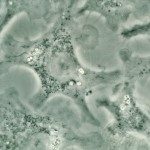Lien vers Pubmed [PMID] – 17428476
FEBS Lett. 2007 Jul;581(19):3723-33
During sepsis, microbial derived products (“pathogen-associated molecular patterns”, PAMPs) are recognized as exogenous danger signals by specific sensors of the host (“pattern recognitions receptors”, PRRs). This interaction leads to the release of numerous stress proteins that are a prerequisite to fight infection, though their overzealous production can contribute to tissue damage, organ dysfunction and eventually death. In critically ill patients, translocation of PAMPs can occur from the gut, and injured tissues and cells release endogenous danger signals called “alarmins” (e.g. High mobility group box-1); that share some properties with PAMPs. Thus, numerous similarities occur during infectious and non-infectious systemic inflammation.

